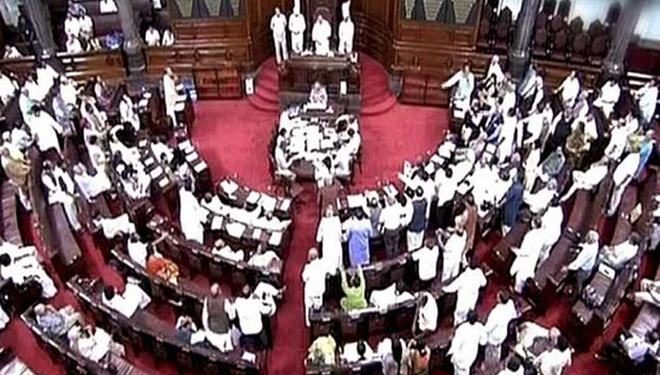New Delhi: The government Friday introduced in the Rajya Sabha the Limited Liability Partnership (Amendment) Bill, which seeks to encourage the startup ecosystem and further boost ease of doing business in the country.
The bill seeks to decriminalise 12 offences under the law and help to improve the ease of doing business by amending the Limited Liability Partnership Act, 2008.
The Limited Liability Partnership (Amendment) Bill, 2021 was introduced by Minister of State for Corporate Affairs Rao Inderjit Singh on the floor of the Upper House amidst protests and sloganeering by the Opposition over various issues, including the Pegasus snooping controversy and farm laws.
The bill proposes to introduce the concept of “small limited liability partnership” in line with the concept of “small company” under the Companies Act, 2013.
It will also amend certain sections of the Act so as to convert offences into civil defaults and to convert the nature of punishment provided in the said sections from fines to monetary penalties.
Currently, there are 24 penal provisions and 21 are compoundable offences, while 3 are non-compoundable ones.
The proposed bill seeks to reduce the total number of penal provisions under the LLP Act to 22, compoundable offences to 7, non-compoundable offences to 3 and the number of defaults to be dealt with under the ‘In-House Adjudication Mechanism’ will be only 12.
Compoundable offences are those which can be settled by paying a certain amount of money.
Offences that relate to minor/ less serious compliance issues, involving predominantly objective determinations, are proposed to be shifted to the In-House Adjudication Mechanism (IAM) framework instead of being treated as criminal offences.
The bill also seeks to insert a new section 34A so as to empower the central government to prescribe “Accounting Standards” or “Auditing Standards” for a class or classes of limited liability partnerships.
Earlier, this week, the Union Cabinet had approved amendments to the Act including decriminalising 12 offences under the law.
This is the first time that changes are being made to the Act since it came into effect in 2009.
At present, there are relaxations for thresholds up to turnover size and partner’s contribution of Rs 40 lakh and Rs 25 lakh, respectively.
Once the amendment is in place, the thresholds will be revised upwards.
PTI







































